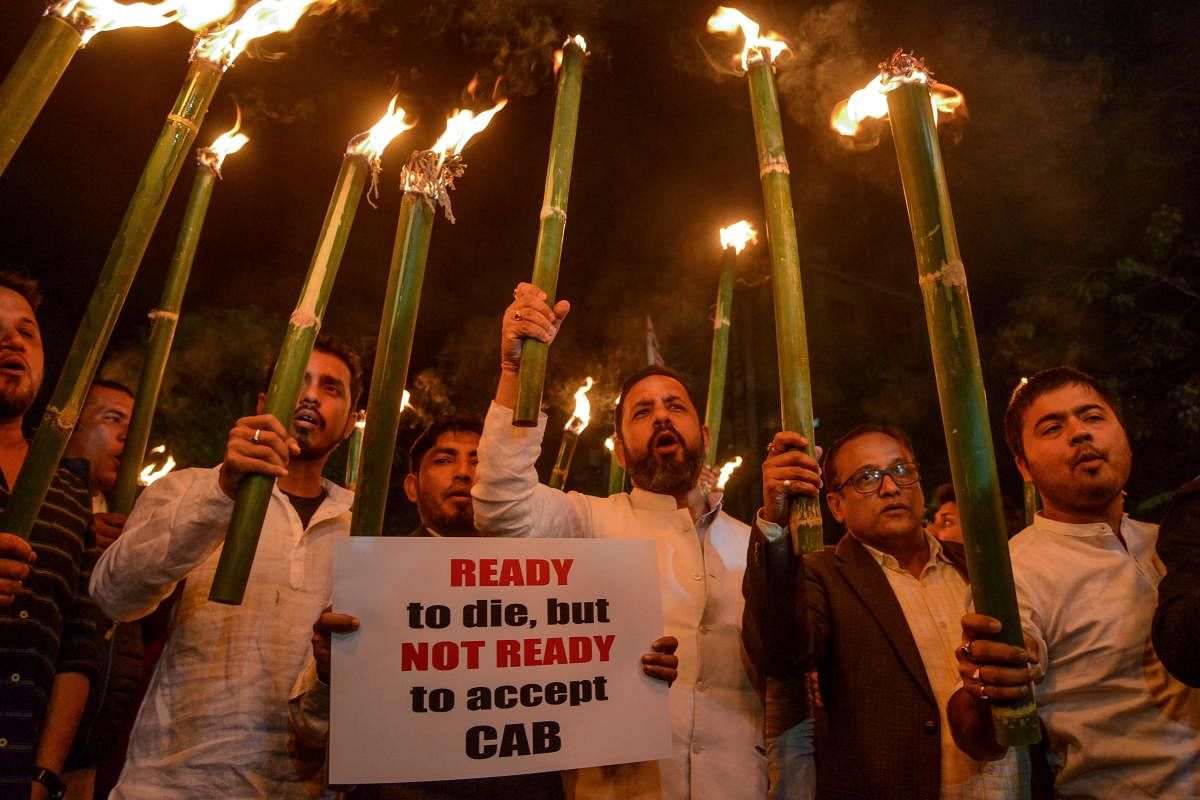
Anti-Citizenship (Amendment) Bill (CAB) protesters burnt tyres, clashed with police and many raised slogans with swords in their hands in parts of Assam as Home Minister Amit Shah tabled the bill in Lok Sabha on Monday. The bill was passed late in the night.
Meghalaya too witnessed strong protests while Manipur government announced a public holiday on Tuesday to celebrate Shah’s decision to introduce Inner Line Permit (ILP) system, similar to Mizoram, Arunachal Pradesh and Nagaland. It is mandatory for outsiders to have permit to enter the states having ILP.
The four states are unlikely to witness similar protests given the Centre’s decision to exempt them from the CAB in view of anger against possible impact of the bill. The ILP was introduced to protect the indigenous people.
Most parts of Assam, however, erupted in protests with many terming the CAB communal and a part of BJP’s Hindu vote bank politics. “Just because BJP has the numbers, they are imposing a bill to give citizenship to Hindu illegal migrants. This bill violates Assam Accord of 1985, which promised to detect and deport all post-1971 migrants, irrespective of religion. We will never accept this as Assam can not be used as dumping ground for illegal migrants,” adviser of influential Assam Students’ Union, Samujjal Kumar Bhattacharjya said.
The bill seeks to allow “religious persecuted minorities” from Bangladesh, Pakistan and Afghanistan such as Hindus, Christians, Buddhists, Jains, Parsis and Sikhs, who had migrated till December 2014, to apply for Indian citizenship after a stay of six years. Organisations representing indigenous communities fear that such a move would reduce the ethnic communities into minorities and endanger their ethnic cultural identity. They want all foreigners, irrespective of religion must be detected based on March 24, 1971, as the cut-off date.